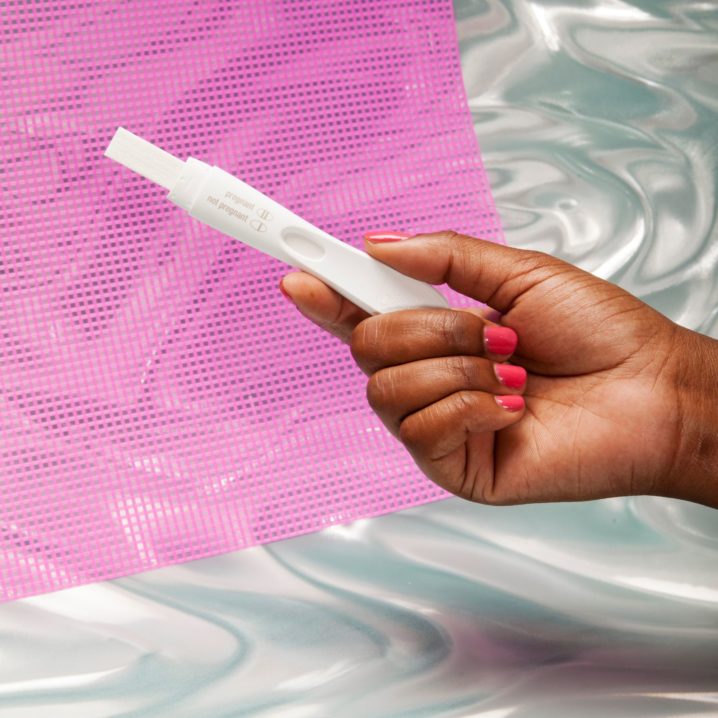
- POPSUGAR Australia
- Fitness
- Curious About Your Fertility? Exactly What Getting It Tested Involves (Including the Cost)
Curious About Your Fertility? Exactly What Getting It Tested Involves (Including the Cost)

Welcome to POPSUGAR Uninhibited: The Fertility Edition, a space where anyone who ovulates can come for information, advice and support. Here, we’ll tackle topics like fertility in your 20s, conception and egg freezing. You can find all of the stories here.
Your fertility can sound like a scary, foreign concept, but it doesn’t to be that way. If you’re willing to put in a bit of effort to get it tested, you’ll demystify it for yourself and understand where you stand with it.
But what does getting your fertility checked involve? And, most importantly for us babes into budgeting, how much will those tests cost us? We answer those questions, and others, below.
When Should You Get Your Fertility Tested?
One of the main two situations prompting you to get your fertility checked is if you’ve been trying to conceive and are having no success falling pregnant. For women and people who menstruate (PWM) under 35, it’s advised you get your fertility checked after 12 months of trying with no success, says Dr Lionel Steinberg, a Victoria-based obstetrician and gynaecologist. For those over 35, the advice is to get it checked after six months of trying.
“People who menstruate with complex gynaecological histories may benefit from earlier investigations and planning,” Dr Steinberg tells POPSUGAR Australia.
The other situation that might see you want to get your fertility checked is if you are about to embark on the journey of trying to conceive and want to check in with your GP, obstetrician or gynaecologist first.
“This is actually a really important step to do for every couple, as there are some important checks and tests that are ideally carried out before you’re pregnant,” says Dr Natalie Elphinstone, an obstetrician and gynaecologist, also based in Victoria. “And it’s especially important for the couple who may have specific health conditions that could impact on a pregnancy, or where a pregnancy could impact on their health condition.”
What Are the Different Types of Fertility Tests?
The first thing to know about fertility tests is that despite what many think, they’re for people of all genders, not just those who menstruate. In fact, sperm can often be an issue for couples who can’t conceive. So, what are the different types of fertility tests? Ahead are just a few, but note that they are, as Elphinstone tells POPSUGAR Australia, “the tip of the iceberg”.
“There are more invasive tests — for example, surgical investigations like a laparoscopy or hysteroscopy — that might be considered next, or much more specific infertility tests,” she says. “But these are things your specialist would then discuss with you, not something a GP would organise or suggest.”
Below are some of the more common types of fertility tests. Note that you may be able to apply for rebates from your state or territory government for these tests. For instance, NSW Health offers a Pre-IVF Fertility Testing Rebate, which helps eligible NSW residents cover the costs of fertility testing. The rebate is a flat $250 for out of pocket expenses beyond what can be claimed via Medicare.
General Health Check-Up
The first step for any fertility test is to visit your GP. They’ll be able to refer you to a gynaecologist or fertility specialist, as well as help to check on your general health.
“Do you need to lose weight, or eat a healthier diet?” says Elphinstone. “Do you need to quit smoking, vaping, alcohol or recreational drugs? Are you due for a cervical screening test? What about your mental health?”
A GP can also advise you on any vaccinations you’re due for, or that you might not be due for but should take now because you can’t when you’re pregnant. They can also tell if you’re at risk of passing on any inherited conditions.
Blood Tests
GPs can also conduct blood tests on women and PWM to check their fertility, usually on day 21 of a menstruation cycle. They look at progesterone levels to determine if ovulation — egg release — has occurred and if your level of progesterone is high enough to support implantation, says Dr Steinberg. Thyroid stimulating hormones and other hormones should also be looked at.
These tests are usually bulk billed through Medicare.
Ultrasound
Another fertility test option for women and PWM is an ultrasound.
“A gynaecological ultrasound would also be helpful to look at the structure and appearance of the ovaries, uterus, fallopian tubes and cervix, this is likely around $300 to $350,” says Dr Steinberg.
It’s worth doing an additional test if you suspect there may be a problem with your fallopian tubes — for example, if you have a history of sexually transmitted infection, Dr Elphinstone says.
“This is called a hysterosalpingo-contrast-sonography (HyCoSy) and involves inserting a small plastic tube into the opening of your cervix and squirting a liquid through it, which can be seen via ultrasound to fill the uterus,” she says. “It’ll show any growths such as fibroids or polyps on the inside of the uterine cavity, and then hopefully flow through both fallopian tubes.”
If it can’t be seen flowing out of the fallopian tubes, it may mean they are blocked — making it difficult or impossible to fall pregnant naturally. This test can be performed at specialist ultrasound facilities, and will cost around $500 to $800, but with some rebate from Medicare.
Semen Analysis
For people who produce semen, GPs can look at whether they are producing good quality semen. A sample needs to be dropped off to a pathology lab within on hour of collecting, and will usually cost around $70 to $150, but usually has a Medicare rebate.
A sperm analysis can assess for motility and count, which is the number of sperm in the ejaculation sample and how well they swim. It can also assess for morphology and vitality, which assesses whether the shape of the sperm is normal and if they’re alive.
Genetic Carrier Screening
A reproductive genetic carrier screening is used to identify a couple’s change of having a child with a serious genetic condition. It’s carried out before pregnancy or in early pregnancy and involves testing both parents’ blood or saliva for faults in their genes. In other words, variants that may cause a health condition. The cost can vary from $250 to $595.



